Saga Dawa Festival
₹ 137 onwards
View Gangtok PackagesWeather :
Tags : Fairs & Festivals
Saga Dawa 2025 Date : 11 June 2025
Saga Dawa, Gangtok Overview
The Saga Dawa festival is one of the most important festivals for the people of Sikkim celebrated with much enthusiasm in the capital city Gangtok. The Mahayana Buddhist tradition recognizes the full moon day of the fourth month of the Buddhist calendar as the anniversary of Buddha's birth, his enlightenment, and his Nirvana. The day is celebrated by various names across India and abroad.
Saga Dawa is the one among the many ways in which devotees commemorate the day. Festivity occurs across Gangtok in the form of processions, prayers, and extending alms to the needy. The customs and rituals, carried out in remembrance of the Buddha, are said to bear fruits for the observers in the future.
Read More on Saga Dawa
Saga Dawa Festival - Traditions & Festivities
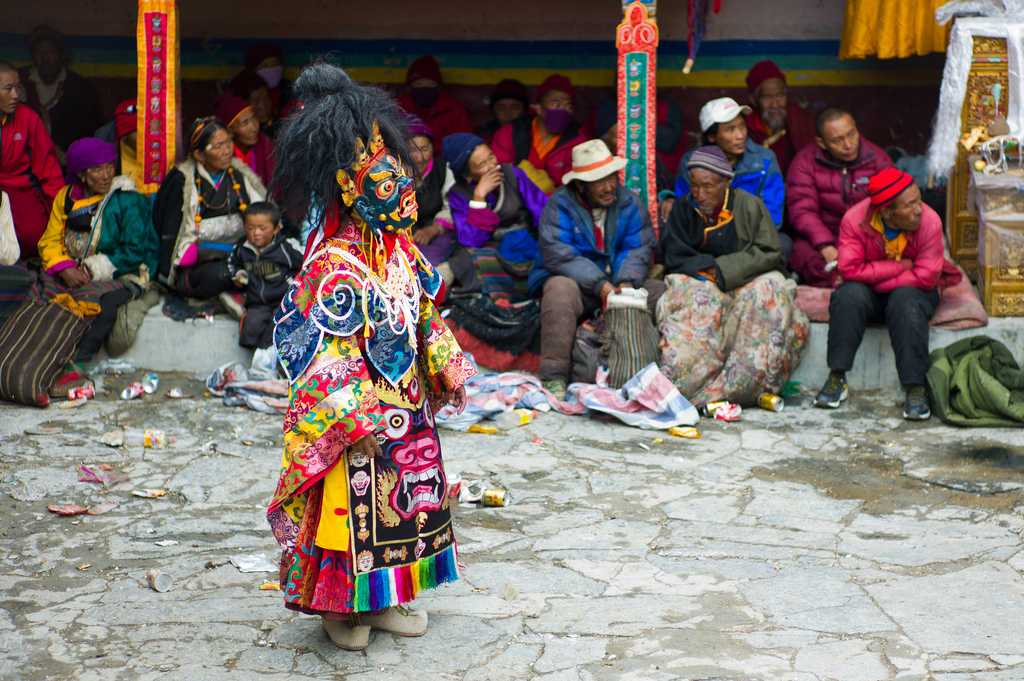
source
Saga Dawa festival marks the birth anniversary, the death (or Nirvana) anniversary, and the anniversary of enlightenment of the Buddha. Each community of Buddhists, in different regions and countries, incorporate their traditional regional rituals in the celebration of the festival. The Mahayana Buddhists of Sikkim, who celebrate the day as Saga Dawa, have their customs to observe the festival.
The Mahayana Buddhist devotees gather in the monasteries and light butter candles, in remembrance of Buddha, who is considered as the one to enlighten the path of life of his followers.
The onlookers find delight in the large procession that is carried out by the Mahayana monks and devotees through the streets of Gangtok. The parade starts from the Tsuk La Khang Monastery and is led by the monks through the streets of the city. Hymns are chanted as the procession moves on the roads, carrying idols of the Buddha, and the Holy Scriptures of the Mahayana tradition.
Giving alms to the needy is a virtue, which is carried out throughout the month, conforming to the message of the Buddha's life. Masks play an important role in almost all the festivals of the mountainous regions of the country, so is the case with Saga Dawa, when several masked monks can be found in the processions.
The sacred scripture, called 'Kajur texts' are read throughout the month, along with the practice of charity to the needy. The devotees gather in the procession to seek blessings of the sacred ceremony revering the Buddha. The monks chant the mantra of 'Om mani Padme hum' as the procession makes way through the streets of Gangtok. It provides for a most soothing of sights.
History of Saga Dawa Festival
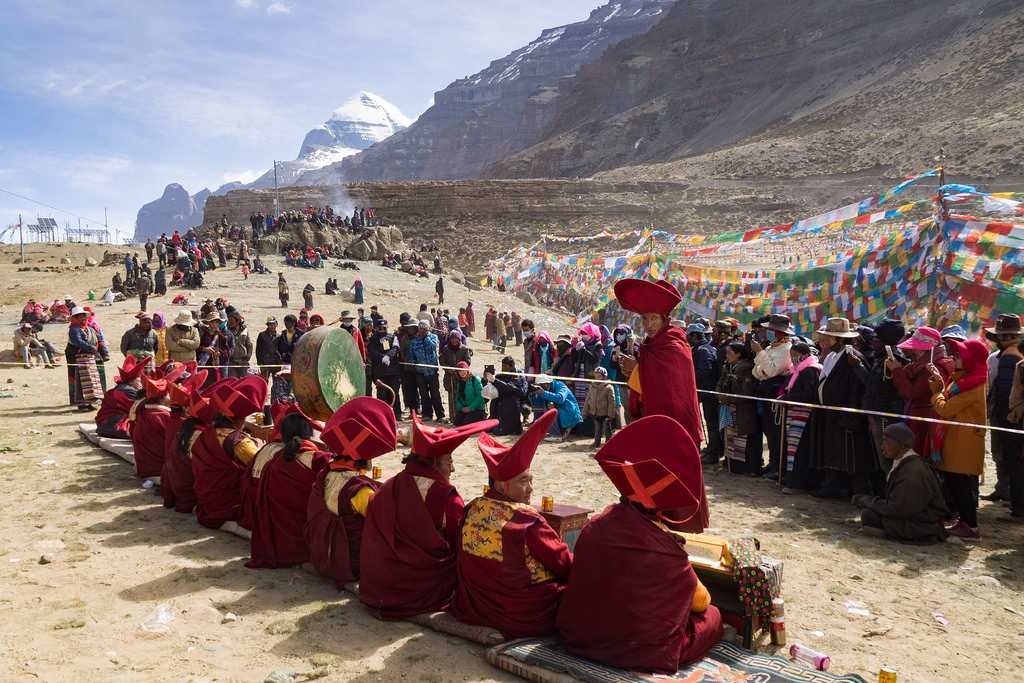
source
Although Buddha's birth is celebrated in different ways in many regions under distinct names, Saga Dawa has a history of its own. It is said the Mahayana Buddhists of Sikkim have been observing the Saga Dawa festival since many centuries ago. However, the date for celebrating it was officially decided in 1950, during the first conference of the World Fellowship of Buddhists held in Sri Lanka. Since the year, the festival is being celebrated with much enthusiasm on an annual basis.
Saga Dawa Venue & Celebrations
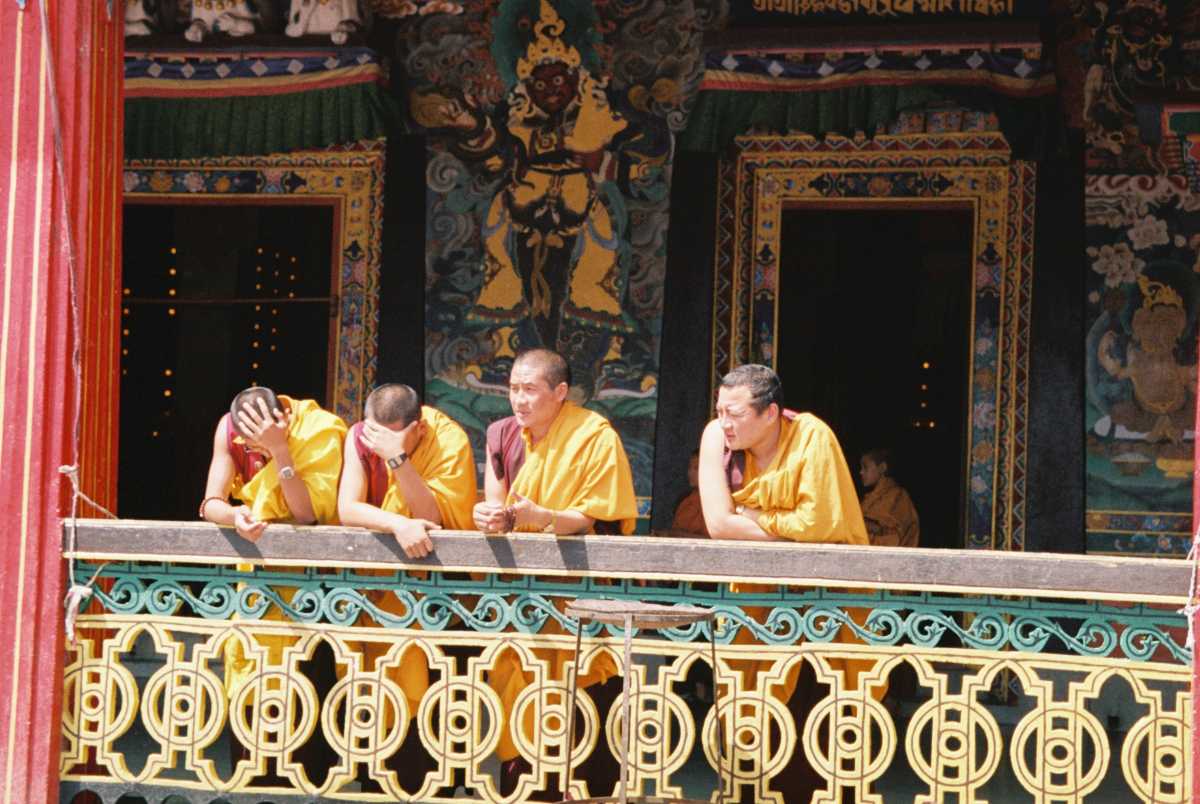
source
The festival of Saga Dawa is observed throughout the state of Sikkim in general and in the city of Gangtok in particular. The procession is carried out through the streets of Gangtok and is a soulful spectacle for the people. The parade commences from the Tsuk La Khang Monastery of Gangtok, which is a monastery of the Mahayana Buddhist order. Then the procession is carried out through the streets. Lightning of butter lamps and reading of sacred scriptures take place across various temples and households.
About Gangtok
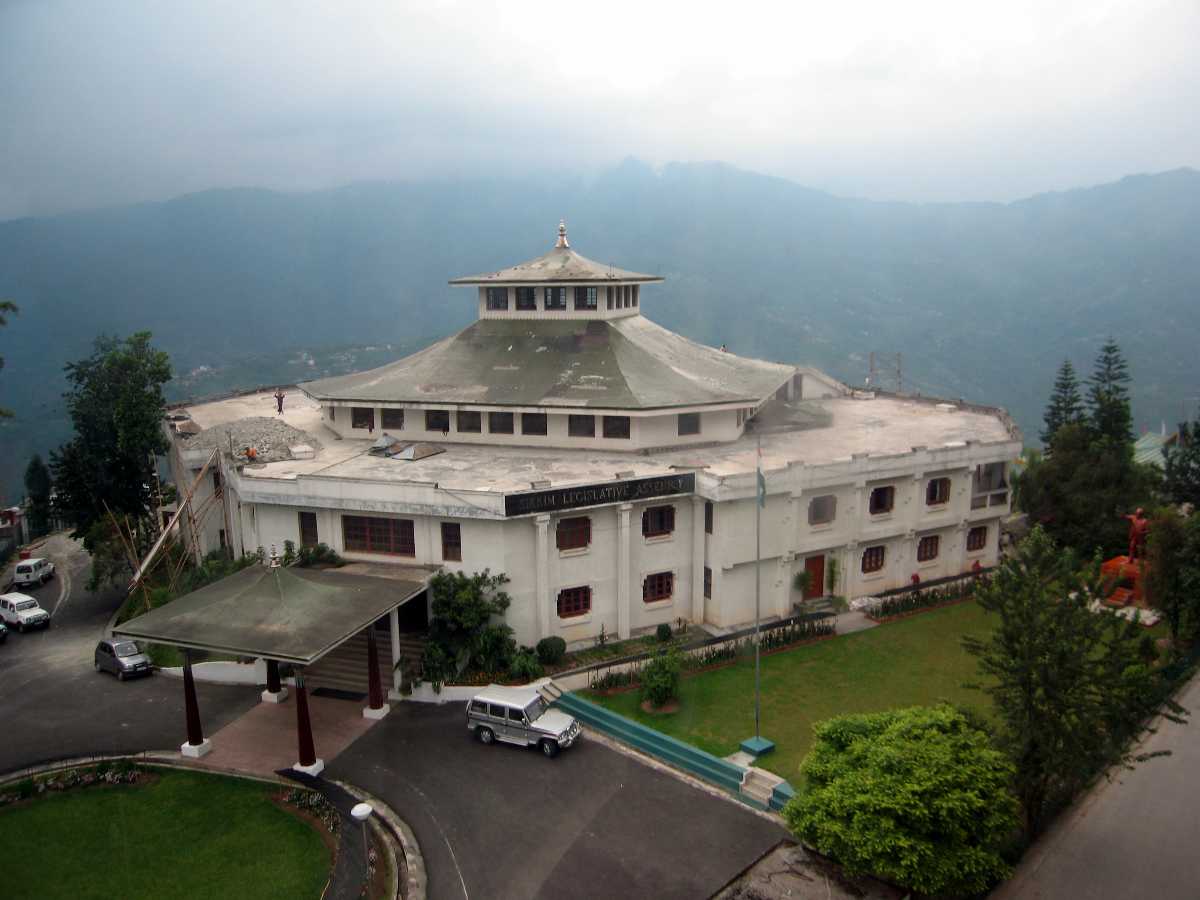
Source
Amidst the beautiful mountains of the Indian state of Sikkim, lies the equally beautiful city of Gangtok. Gangtok is a major Buddhist pilgrim site because it has some of the most significant Buddhist temples and monasteries in the country, such as the Enchey Monastery and the Phodong monastery. The city of Gangtok is a significant place for the Buddhists and is an established pilgrim site since the decade 1840s. The provisions of hiking and trekking make the city a more sought-after destination to visit. A significant figure of 28% of the population in Gangtok is that of people following the Buddhist faith. Thus, a celebration on the birth anniversary of the Buddha in a grand manner is naturally expected.
Buddha happens to be one of the most influential preachers of any religion to be ever born in India. His birth anniversary is commemorated in different ways, with various rituals, by different names in different parts of the country and the world. While the day of his birth, according to the Buddhist Calendar, is celebrated as Vesak Day in countries like Sri Lanka, Malaysia, Singapore, and Indonesia, it is known as Buddha Purnima in much of India except for the north-east region of the country. Other regions celebrated the day as Buddha Jayanti or Buddha day. In the state of Sikkim, and thus in the capital city of Gangtok, the day is celebrated by the name of Saga Dawa.
Saga Dawa Celebratory Month
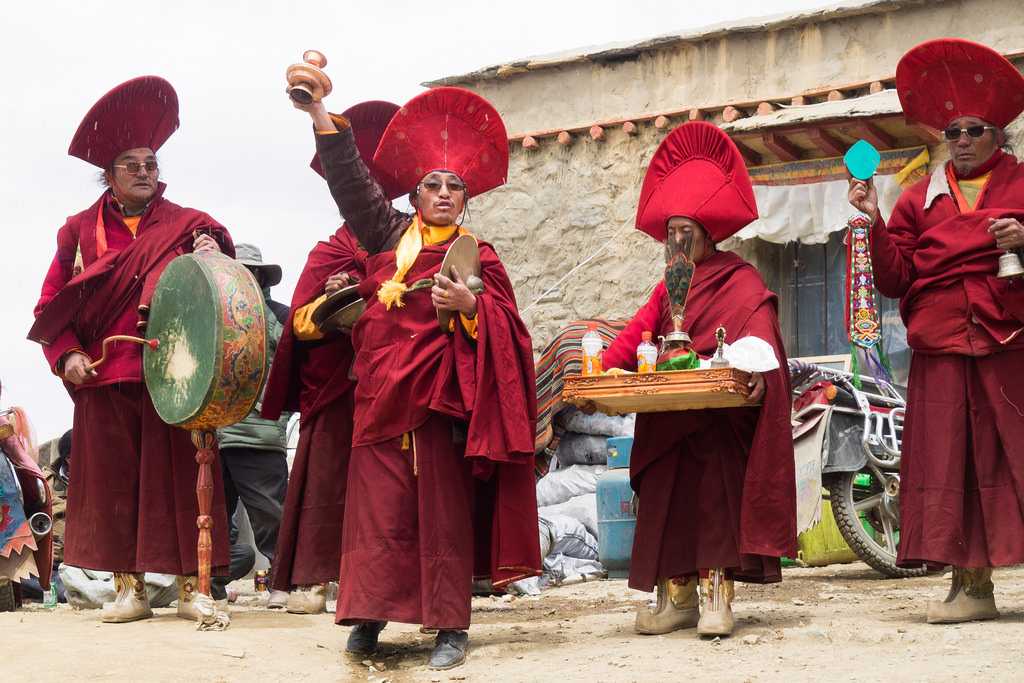
source
Saga Dawa is celebrated to mark the day of birth, enlightenment, and Nirvana of Gautam Buddha, which all happen to fall on the same day. The festival is celebrated by different names in different regions on occasion. It is observed on the full moon day of the 4th month of the Buddhist Lunar Calendar, and therefore a fixed date on the Gregorian calendar is not available for each. However, the Saga Dawa mostly falls between April and June.
How to Reach Gangtok
By airways, the nearest airport is the Bagdogra Airport, which is in the state of West Bengal and is situated at an approximate distance of 125 kilometers from the city of Gangtok.
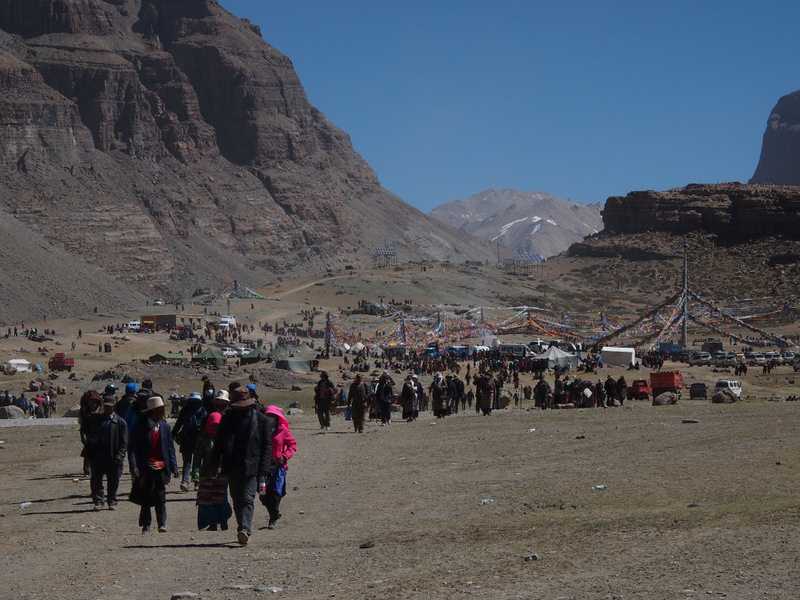
source
Saga Dawa festival, like all its counterparts, is one of the most significant festivals of Mahayana Buddhism. It is celebrated with much enthusiasm in the state of Sikkim in general and in the capital city of Gangtok in particular. It marks the birth, the enlightenment, and the Nirvana day of the Buddha and is celebrated by the culture and traditions of the region. The procession of monks, carrying idols of the Buddha, chanting sacred hymns, is one of the most soulful religious events one can become witness to. Saga Dawa is not to be missed if one is in the city of Gangtok around the time of its observance.
Saga Dawa Reviews

Have a Question on Saga Dawa?

experience.